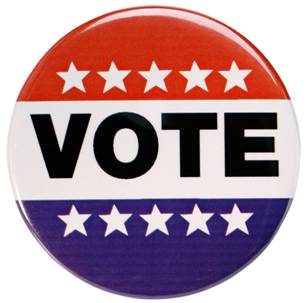 I voted this morning. But I didn’t always have that chance. In 1998 I lost that right to vote because of Rudy Giuliani, and then became a plaintiff in an election class action suit. And so, on this day that everyone agrees is an historic election (aren’t all elections historic?) I want to re-visit my disenfranchisement.
I voted this morning. But I didn’t always have that chance. In 1998 I lost that right to vote because of Rudy Giuliani, and then became a plaintiff in an election class action suit. And so, on this day that everyone agrees is an historic election (aren’t all elections historic?) I want to re-visit my disenfranchisement.
In October, 1998, I was married and embarked on a three week honeymoon. I would be out of the country, unable to receive mail, and not be near any US Embassy between my departure from the country and election day.
I tried several times to get an absentee ballot, which by law back then must be printed up 30 days before election day. They were not printed up, however, due to squabbling by politicians over what kind of a referendum should be on the ballot.
What kind of squabbling? There was supposed to be a referendum on the ballot on the future of Yankee Stadium. But then-mayor Giuliani, a big Yankee fan, didn’t want it. So he invented a dispute to put a city charter referendum on the ballot that would trump the Yankee Stadium issue. And since the ballot could only have one referendum, the two sides were caught up bickering in the courts over what would be on the ballot, thus delaying the printing of the absentee ballots. You can read some of the sorry details at this NYT article.
As you might guess, I was pissed.
I always vote, and wanted to vote. I turned to an election lawyer and became a plaintiff in a voting rights suit to get the ballots printed up. My affidavit is here: ElectionAffidavit.pdf
On the day I left the country, however, there were still no printed ballots. My wife of one day and I had done everything any citizen could be expected to do to vote.
So Mrs. NYPILB and I (I just know she loves that catchy acronym) took out paper and hand wrote absentee ballots expressing our wishes in the election, noting carefully the proper election district, etc., in the envelope-inside-an-envelope system used here in New York.
There is little doubt about two things:
First, the ballots clearly expressed an intention to cast a ballot by two citizens, and second, they were no doubt defective on a variety of technical grounds since they were not distributed by the Board of Elections.
Should such ballots even be opened to determine the will of the voter?
I don’t know what kind of bizarre things will happen this election day. But let me say before even knowing what they are, that in the event of a dispute any court should side with the intent of the voter if it can be known, and not with the technical aspects of some rule that may have made casting the vote excessively difficult, if not impossible.